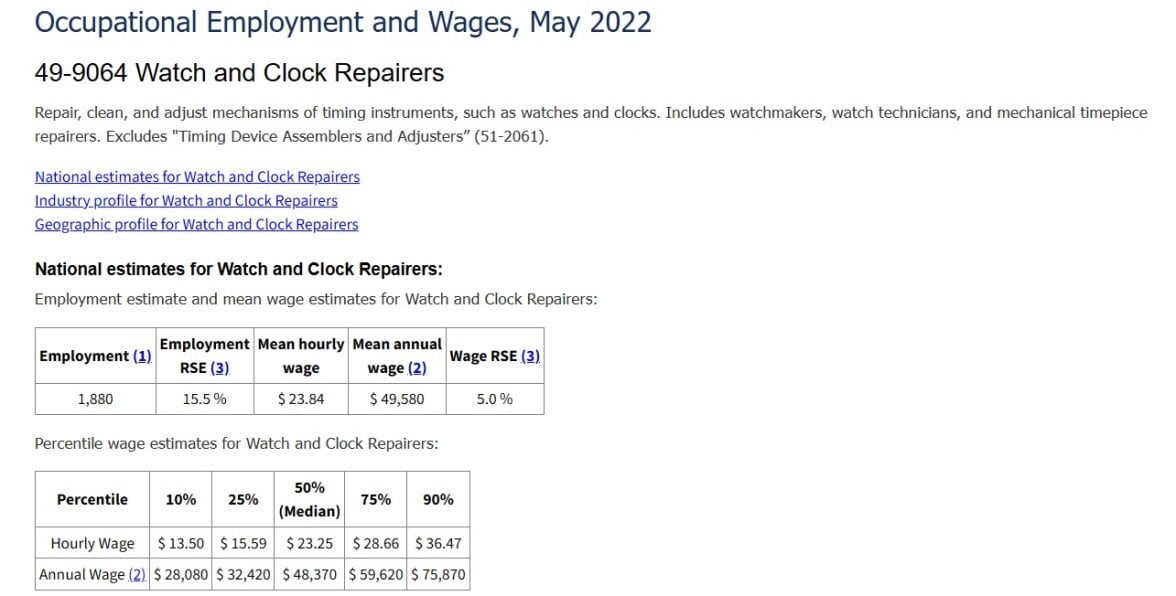Dash1
·I’ve been collecting mechanical watches for nearly 25 years now. A lack of qualified watchmakers being an existential threat to our hobby is something I’ve heard regularly throughout that time. I see a reference to it on this forum almost weekly and I’ve never really questioned it until recently.
Given the massive increase in sales of new mechanical watches this century (Omega and Rolex supposedly sell about 1.5 million watches/year and maybe 20 million for Switzerland alone) surely the number of qualified watchmakers must have increased significantly at the same time. Of course most of those watchmakers might be working for the big Swiss brands but they’re still out there and newly qualified watchmakers must be coming through on a reasonably large scale to support the industry.
Certainly there’s no longer a watchmaker in every small town like there might have been in the 1950’s, but I can send my Speedmaster to one of the worlds leading specialist watchmakers and have it back in two or three months, so I wonder - is watchmaking really a dying skill?
Given the massive increase in sales of new mechanical watches this century (Omega and Rolex supposedly sell about 1.5 million watches/year and maybe 20 million for Switzerland alone) surely the number of qualified watchmakers must have increased significantly at the same time. Of course most of those watchmakers might be working for the big Swiss brands but they’re still out there and newly qualified watchmakers must be coming through on a reasonably large scale to support the industry.
Certainly there’s no longer a watchmaker in every small town like there might have been in the 1950’s, but I can send my Speedmaster to one of the worlds leading specialist watchmakers and have it back in two or three months, so I wonder - is watchmaking really a dying skill?
